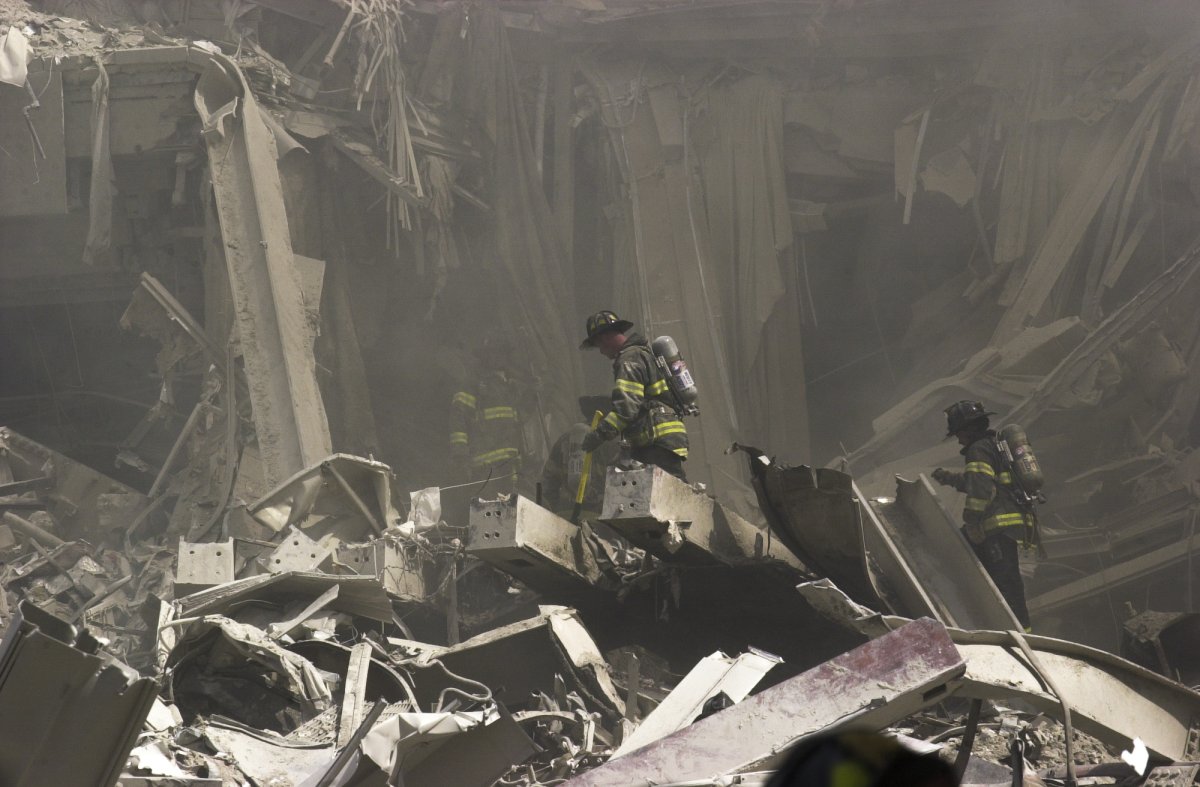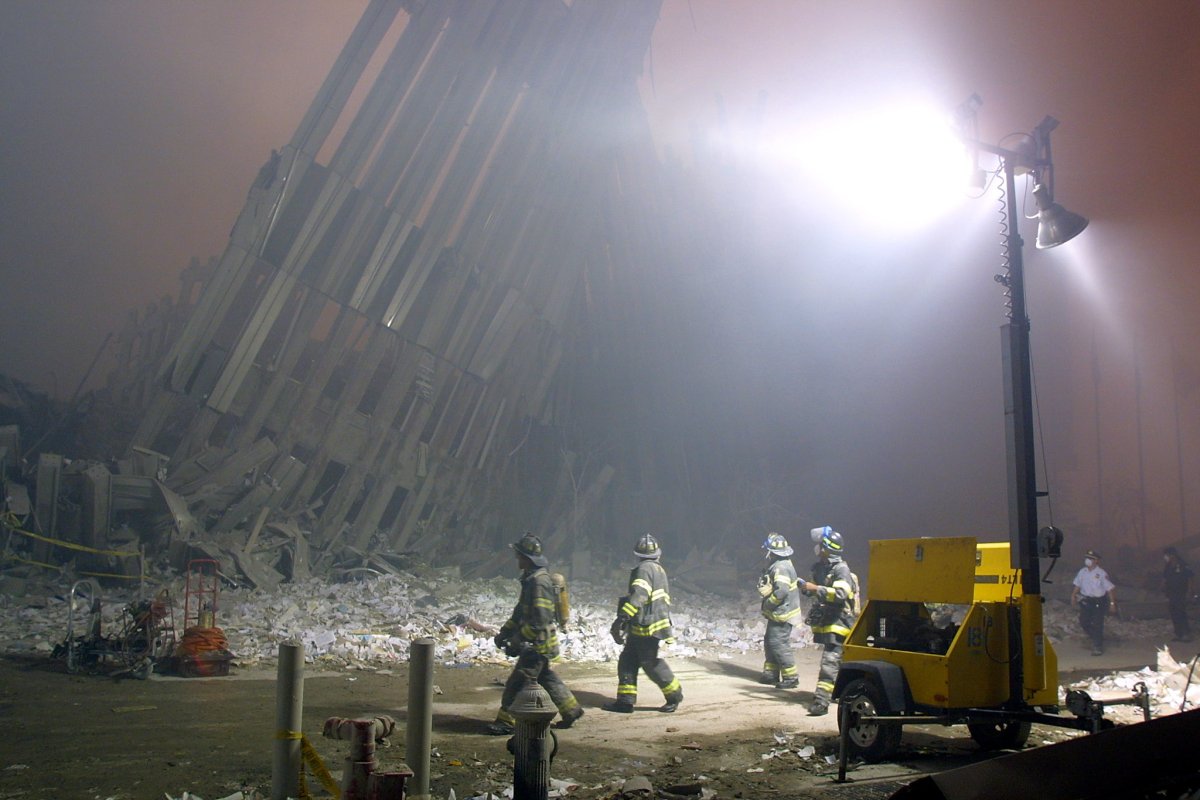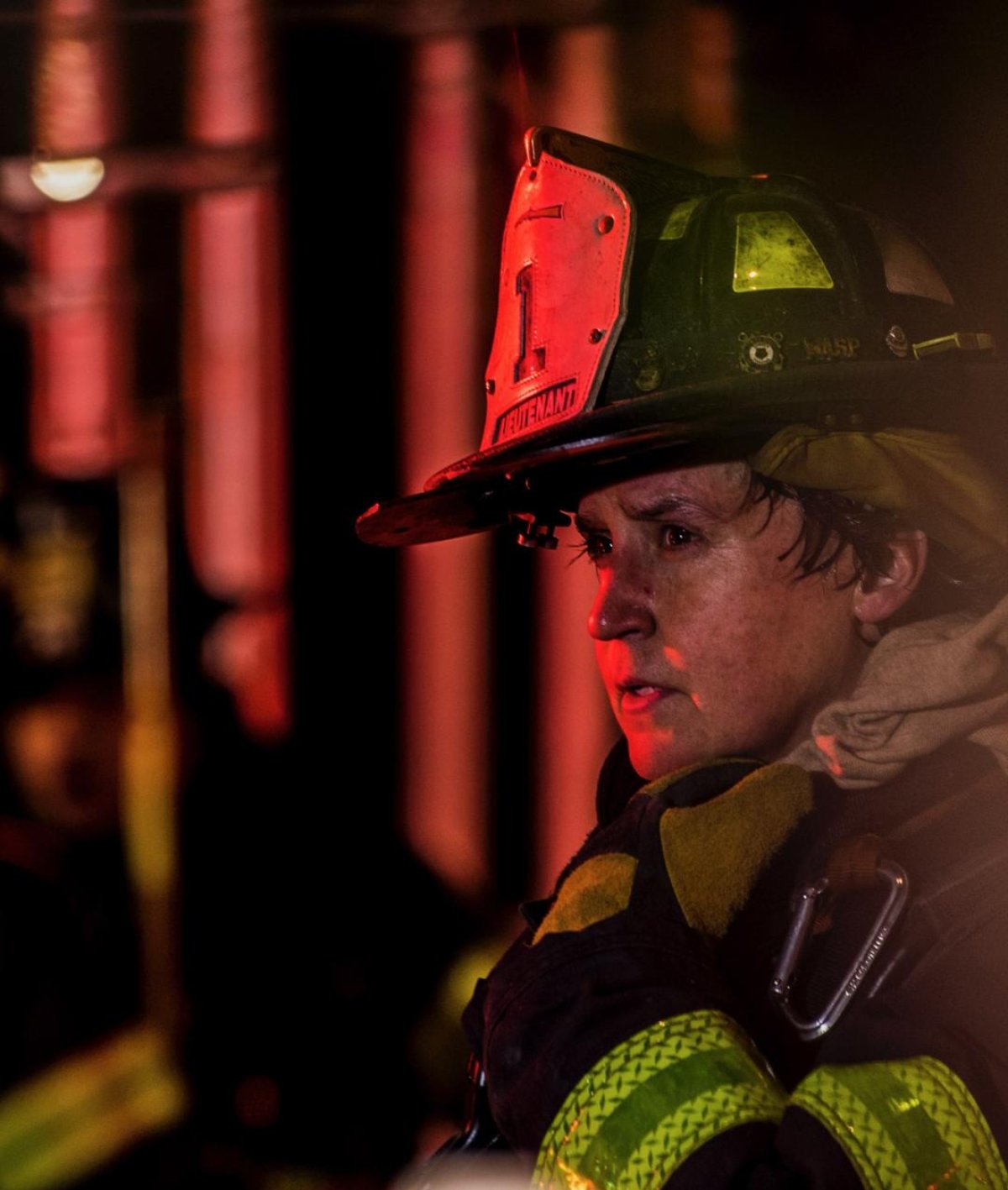When I was in high school in 1982, the first women had gotten into the New York Fire Department (FDNY) but there were people asking how women could pass the physical tests. Athleticism in females wasn't really encouraged at the time, so I think those women in the early '80s were beyond brave to go for the job without really having any experience of non-traditional labour.
I remember wondering how we were still having these conversations about whether women could compete physically, so I decided to take the test myself and I actually passed it twice before I was hired by the FDNY in 1997, at the age of 30.
My first four years in the fire department were challenging, but I had been born and raised in Brooklyn in the '70s and '80s before it was a chic place to be. New York was a tough city, so the idea that there was violence and danger around was not unusual to me at all.
On the morning of September 11, I was late for a training class I was attending in Staten Island. It was bumper-to-bumper traffic and I remember looking up and noticing that there was something like confetti in the air. It was odd. As I was driving along, I began to hear reports on the radio that a plane had gone into the World Trade Center. I assumed it was one of those little two seater planes and something had gone awry. But as I was inching along the highway, I got to a point where you could actually see the World Trade Center across the East River. There were at least three floors of the north tower on fire. I remember thinking: that's not good.
All of a sudden, I heard an explosion and reports on the radio of another plane hitting the south tower. I realized then that something was radically wrong. I inched off the highway and sped back to my home.
I called the fire department, changed into my running gear and ran into Manhattan across the Brooklyn Bridge. When I got to my fire house, Ladder 20 on Lafayette Street, there was tons of smoke but you could still see the outline of the south tower. The smoke had overtaken the top half of the building, which isn't unusual in a fire, so when someone said it was falling, I couldn't believe it. Then I saw the top of the building tilt out of the smoke and it came straight down.
I knew I couldn't just stand there watching, so I ran into the firehouse to get my uniform on. My usual company was already down at the World Trade Center, so the fire department had sent another fire truck and company to cover our area. There were three or four other firefighters who, like myself, were not with that other company, so we all hopped on the truck's roof before it sped down Broadway. But as we got to New York City Hall, it was like passing through a theatrical curtain. From no dust, to dust everywhere. That's when I thought: dear God, this building really has fallen.
As we stopped close to the World Trade Center, I walked to the back of the rig to look for an air mask. Then, I happened to look up and I saw this 110 storey tornado coming at me; just curling itself towards me. I had heard nothing.
I shouted "run, run, run!" to the team, and we took off down the block. I remember thinking that if the building was tumbling straight down, I would beat the falling debris if I beat this cloud coming towards us. Then my stomach dropped, because it was hurtling at us from only a block away.


About halfway down the block, a basement doorway was open and our group of firefighters started piling through, but as I reached the door, I was blown in by the tornado of debris. It engulfed the entire hallway. Suddenly it was pitch black, with debris hitting us in the head. We groped around until the room turned light grey and we could go back out onto the street to look for survivors. I remember going outside and seeing the surroundings change from black, to dark gray to light gray as the dust started to settle.
At that point, I began to make a list of who I thought was dead in my life. It was very matter of fact. I knew people working in finance and my brother was a police officer at One Police Plaza. The situation was horrifying, but I had a job and I had to focus. I had to get used to the idea that I had lost people.
What I remember most is the absolute peace. It was horrible, but it was eerily quiet, like a snow day where the sound is muffled. New York is never quiet, but there was absolutely no sound. No birds. Nothing.
We just saw dust. People had become dust. Everything was dust. It looked like a movie set. We saw a car with it's blinkers on with nobody in it. You saw vestiges of people who had left their lives and run. I desperately looked for people everywhere, but there was nothing. We inhaled them. They were there, and then they were part of us.
As we made our way to the site of the towers, frantically looking for people, I remember seeing the shell of the building just standing there. That's all there was. Just a big pile of rubble, and all of us, like ants, desperately doing what we could to find people.
While we were looking for people where the towers had collapsed, the dust was so thick that we couldn't see the sky. All of a sudden, I heard jets roaring over our heads. I was standing in the middle of West Street highway hoping they were ours. Because if they weren't, I knew we were all toast. Nobody had any idea what was happening.
But as the day went on it became frustrating. We wanted to help and we were finding nobody, because there was nobody. I did not find anyone alive that day.
Although I had known immediately what had happened to my colleagues who were at the site as the towers collapsed, very late that evening I got back to the firehouse to change clothes and I remember being met at the door by another firefighter. I asked him if they were gone, and he said yes. I had known, but your heart still drops.
After 9/11, the fire department in New York had a tremendous amount of responsibility to try and put these fire companies back into service with all of these firefighters now missing. There was a 24 hour schedule for going to try and search for people in the rubble and we also had to take care of the families of those firefighters who were missing. Then we started finding remains and people had to be buried.
It was non-stop for more than a year afterwards, so we never had time to breathe that sigh of relief. There were portions that were harder than others, but we just did our jobs because it had to be done.
You can get caught up with the idea that it could have been you, and it wasn't. But because of the occupation I have, I have become very methodical and that is a blessing. I just wake up every morning hoping I'm worthy.
When I consider my achievements as a female firefighter in the years since, I don't think "wow!" It hasn't always been an easy road as a woman. I do what I do because I'm interested and I want to be better at my job. My mantra is: keep going.
I was given a tremendous opportunity being born when I was born, the women who came before me laid an incredible foundation for me. I'm standing on the shoulders of so many women before me who have never been recognized. I grew up with an aunt who had been affected by polio; she could barely walk. I always think about her. She held three jobs. Those are the women who really kept going.
So I have a responsibility to continue to lay the foundation for those who come after me. I do the best I can do to make it easier for someone else. That's the way I see it. If I do that, I have done my job.
I always swore I would never be defined by a day, because that's not life. But I was affected by it. I didn't suffer fools before and now I truly don't. I don't have time to waste. I can be very patient, but that day took patience out of me.
I don't think I will ever really allow myself to think about 9/11 until many years have passed. There are moments when I remember something I had forgotten and think, dear God. But they don't last long and I don't let them last long. That day isn't the only day that's taken the legs out from under me, but it was huge. And I need my legs, I need to stay grounded.

I did my job that day the best I could, but I'm one of many people who were affected. One of the stories I hold close to my heart from that day is that of Betty Ong. She was a flight attendant on the first plane that went into the north tower. There is a recording of Betty Ong on a call with authorities for 23 minutes giving them a play-by-play account of the hijacking up until the plane went into the tower. And then it stops. She was hiding in the plane while the terrorists were taking control and hurting people. That's a hero. She was a normal human being who went to work that day and did something incredible. Many human beings went to work that day and did things that were incredible. That's what I want the memory of the day to be about.
I care a great deal about this city and the people in it, but in the end, we're not heroes, we did our job that day. I'm not a hero, all I am is a human being.
Lieutenant Arienne Walsh is a 23-year veteran of the FDNY and in 2018 became the first woman in FDNY history to be assigned to an FDNY Rescue Company, Rescue 1. Previously, she was the second woman in FDNY history assigned to Special Operations Command, Squad 18, and the first woman to be promoted to Lieutenant in 2005.
All views expressed in this article are the author's own.
As told to Jenny Haward.
Uncommon Knowledge
Newsweek is committed to challenging conventional wisdom and finding connections in the search for common ground.
Newsweek is committed to challenging conventional wisdom and finding connections in the search for common ground.
About the writer
To read how Newsweek uses AI as a newsroom tool, Click here.








